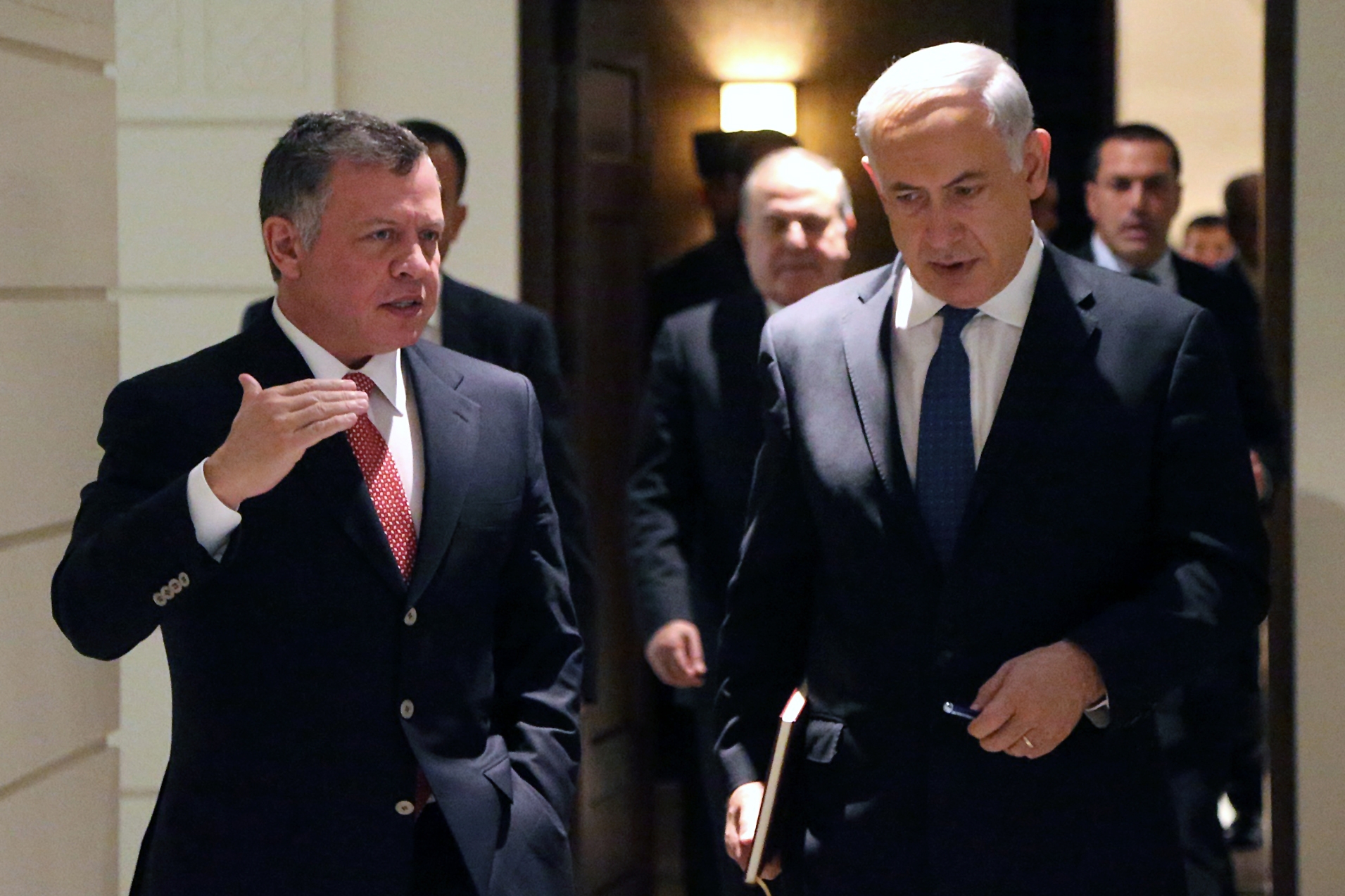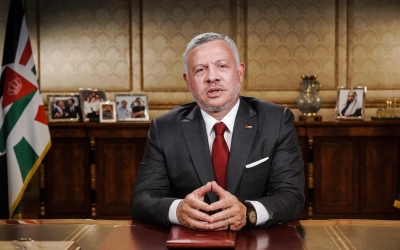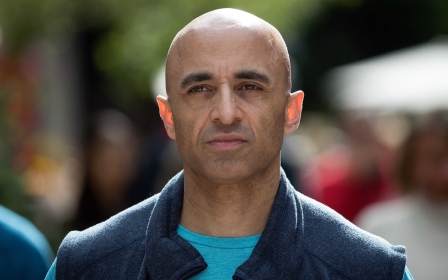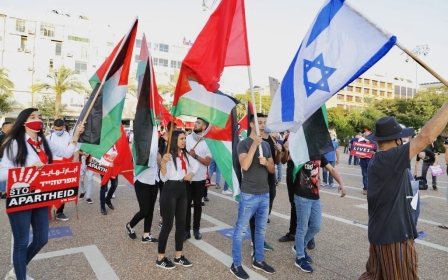Jordan's King Abdullah 'snubs Netanyahu call' as annexation tensions rise

Jordan’s King Abdullah II has reportedly snubbed attempts by Israeli Prime Minister Benjamin Netanyahu to speak to the monarch, as tensions over Israel’s plans to annex parts of the occupied Palestinian West Bank rise.
According to the Palestinian Maan news agency, King Abdullah refused to speak to Netanyahu over the phone and has avoided committing to any date to meet in the future with the prime minister or his coalition partner, Defence Minister Benny Gantz.
Though King Abdullah and Netanyahu have long had testy relations - the former has turned down calls before and refused to meet the latter in August - a Jordanian source told Maan that the latest snub was directly related to Netanyahu’s annexation intentions.
The Israeli premier has said that annexation legislation would begin to be introduced from 1 July, with illegal settlements and the Jordan Valley on the table.
Israel's planned annexation of the Jordan Valley: Why it matters
+ Show - HideThe annexation of the Jordan Valley could effectively kill whatever hopes remain for a two-state solution to the Israel-Palestine conflict as it would render completely impossible the establishment of a viable, contiguous Palestinian state.
In April, Prime Minister Benjamin Netanyahu reached an agreement with his rival Benny Gantz to form a unity government that seek to impose Israeli sovereignty over the Jordan Valley. Legislature could be discussed from 1 July.
The Jordan Valley accounts for around one-third of the occupied West Bank (almost 2,400 square kilometres), where 30 Israeli agricultural settlements house around 11,000 settlers.
Some 56,000 Palestinians also reside in the Jordan Valley, including in the city of Jericho, where their daily lives are deeply impacted by Israeli occupation policies.
The area is rich in minerals and agricultural soil and is a highly strategic area, as it lies along the Jordanian border.
Jordan, the Palestinian Authority in Ramallah, and senior officials in the European Union openly oppose the annexation plan, while the administration of US President Donald Trump has encouraged such moves.
He insists he is coordinating his plans with the administration of Donald Trump, whose so-called “deal of the century” scheme to address the Israel-Palestine conflict revealed in January encouraged annexation, alongside the establishment of a disjointed and “independent” Palestinian rump state.
New MEE newsletter: Jerusalem Dispatch
Sign up to get the latest insights and analysis on Israel-Palestine, alongside Turkey Unpacked and other MEE newsletters
The Jordan Valley, a resource-rich and highly strategic area, shares 97km of border and two crossings with the Hashemite kingdom.
Deep societal, cultural and economic links with the territory, which holds around 56,000 Palestinians and 11,000 Israeli settlers, mean the upheaval of annexation would be severely felt by Jordan.
Though there have been suggestions in the Israeli media that Netanyahu will annex three large settlement blocs - Maale Adumim, Ariel and Gush Etzion - to begin with in an attempt to placate Jordan, the kingdom has given no indication that such a move would change its response.
'Massive conflict'
Last month, King Abdullah warned that Israeli annexation could result in “massive conflict” and the cancellation or freezing of Jordan’s landmark 1994 Wadi Araba peace treaty with Israel.
“I do not want to make any threats and create an atmosphere of controversy, but we are considering all options,” King Abdullah told the German magazine Der Spiegel.
Jordan and Egypt are the only Arab countries that have peace treaties with Israel, though in recent years the Israeli government has been fostering closer and closer ties with several Gulf states.
However, the UAE’s ambassador to the US, Yousef al-Otaiba, last week penned an unprecedented opinion piece in rightwing Israeli newspaper Yedioth Ahronoth warning that annexation could reverse this trend.
Otaiba said that the annexation of the Jordan Valley would defy Arab consensus and the Palestinian right of self-determination, “spark violence”, “awaken extremists” and affect ties with the Hashemite kingdom next door.
“It will primarily affect Jordan. The same Jordan whose stability, which is sometimes taken for granted, benefits the entire region and benefits Israel in particular,” Otaiba said.
Jordan and Israel, alongside the Ramallah-based Palestinian Authority (PA), enjoy close security cooperation, which is highly prized by all sides but now jeapordised by annexation.
The PA has already begun cutting ties with Israel, and King Abdullah warned in Der Spiegel that the Palestinian Authority could dissolve altogether.
"What would happen if the Palestinian Authority collapses? There would be more chaos and extremism in the region. If Israel really annexed the West Bank valley in July it would lead to a massive conflict with the Hashemite Kingdom of Jordan," he said.
Middle East Eye delivers independent and unrivalled coverage and analysis of the Middle East, North Africa and beyond. To learn more about republishing this content and the associated fees, please fill out this form. More about MEE can be found here.






